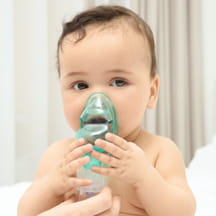COVID-19 exacerbated the behavioral health crisis among the nation’s youth—and while many routines of pre-pandemic life are returning, experts say children face a long road ahead in recovering from the pandemic’s effects. But what about the pediatric health care providers tasked with helping them get there?
One children’s hospital leader says COVID-19’s ongoing impact means the wellness of pediatric care providers will continue to be crucial. “Moving forward, I'm really trying to be mindful of the fact that our team's exhausted, and we have to admit to ourselves this is the new normal,” says Heather Huszti, chief psychologist at Children’s Health of Orange County (CHOC). “We have to adjust and support our providers to help keep them going—the issue of burnout and stress is very real.”
The onset of COVID-19 also forced children’s hospitals to abruptly adjust operations to keep patients, families and staff safe while providing essential care for the community. Huszti is taking a fresh, objective look at those policies before assuming a return to pre-pandemic routines.
“We have to be humble and continue to look at the way we've done business,” she says. “Just because we've always done it one way doesn't mean that's the best way to do it anymore.”
Huszti says the rapid expansion—and subsequent staying power—of telehealth services is a prime example of the rethinking processes. Although she firmly resisted using telehealth in pediatric medicine before the pandemic, she now has a better appreciation of its value.
“I was really against it, but then in a period of two weeks I had to change half of our business to telehealth—it was a humbling moment,” Huszti says. “We were fortunate to not only find out we could do it—but that there were benefits to it.”
The notion of professional humility, according to Huszti, also means there’s a “huge” need to include input from patients and their families when designing new programs. “It's that phrase, ‘nothing for us without us,’” Huszti says. “Hospital systems are sometimes clunky about that.”
Read more about how CHOC and other children’s hospitals are helping kids through the mental and behavioral health crisis exacerbated by COVID-19.


